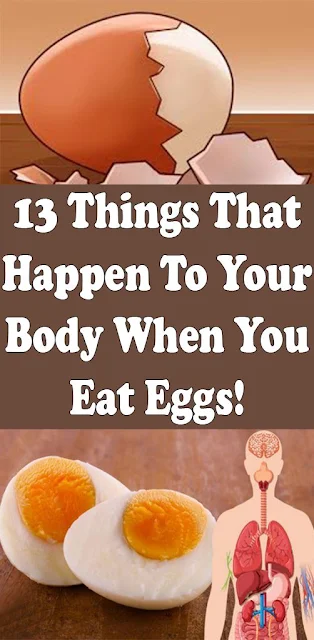There's a good reason why it's referred to as the incredible, edible egg. This superfood is a lean protein choice that can be eaten for breakfast, lunch, dinner, or as a nutritious snack. This food contains no sugar or carbohydrates, has a low calorie count, and is very filling.
If eggs aren't one of your top 10 healthy food options, keep reading to learn how they can benefit your body. By the time you're done, you might have a different opinion.
1. Eggs give you a boost of energy: One whole egg contains 6 grams of high-quality protein and only 70 calories. Pair two eggs with a half cup of oatmeal for a low-calorie meal that’s filling and balanced.
2. Eggs improve liver function: Each egg contains a healthy dose of choline. Choline, a macronutrient, helps increase your metabolism, transports vitamins and minerals and improves liver function.
3. The cholesterol in eggs don’t affect blood cholesterol the way you think it does: Remember that rumor that you shouldn’t eat whole eggs because it’s too fatty? It’s false (for most people). According to Authority Nutrition, your liver already produces cholesterol. When you eat eggs regularly, your body naturally starts producing less… sort of.
4. Eggs increase HDL (the good cholesterol)
High-Density Lipoproteins (HDLs) reduce the risk of heart disease and stroke. Commonly referred to as healthy cholesterols, you can increase the level of HDLs in your body by regularly consuming eggs.
5. Eggs can help the eyeballs: In addition to protein, eggs contain high levels of Lutein and Zeaxanthin antioxidants. Studies have shown that these nutrients help build up your retina and reduce the risk of cataracts and macular degeneration.
6. Eggs can help you eat less: Eating eggs for breakfast can help you eat less throughout the day. The high amount of protein place eggs high on the list of satiating foods.
7. Eggs are gluten and carb free: If you can’t have gluten or you’re on a special diet for diabetes, eggs are a great way to get your protein. It should be noted though, that some studies show that eggs may increase the risk of heart disease in people with type 2 diabetes.
8. Eggs protect your bones: Eggs have more Vitamin D than ever before and this can help protect your body from osteoporosis.
9. Eggs may reduce your risk of cancer: Choline, that same macronutrient that helps your liver function, may also reduce the risk of breast cancer in women, according to Women’s Health. (Note: You’ll find choline in the egg yolk, not the whites. So don’t shy away from the whole eggs!)
10. Eat eggs for better muscles: Weight-lifters chug protein shakes like it’s going out of style because they know protein is essential for faster muscle repair. Nosh on a few eggs after a workout to make muscle building easier on your body.
11. Eggs are pregnancy friendly: If the smell and texture of eggs don’t make you queasy while you’re carrying a little one, keep (pasteurized and completely cooked) eggs a part of your diet. Two whole eggs contain 250 milligrams of choline. Doctors recommend that pregnant and breastfeeding women consume between 450 to 550 milligrams per day. Choline aids in brain development and helps prevent birth defects.
12. Healthy hair, healthy skin: Eggs contain a B-complex vitamin called Biotin. This vitamin helps your body metabolize fats and carbs for energy. As an added plus, biotin can improve your hair, nails, and skin!
13. Brown eggs and white eggs are basically the same: As a final note, there’s no need to worry about whether you should get brown eggs or white eggs. Seriously. Brown eggs come from bigger chickens with red ears and white eggs come from smaller chickens with white ears… that’s the biggest difference, according to Dr. Jockers.
